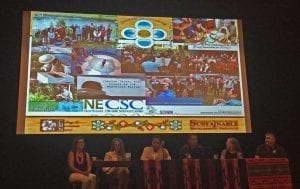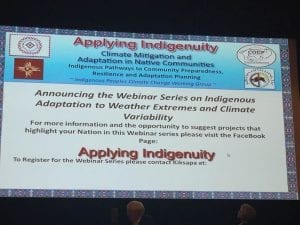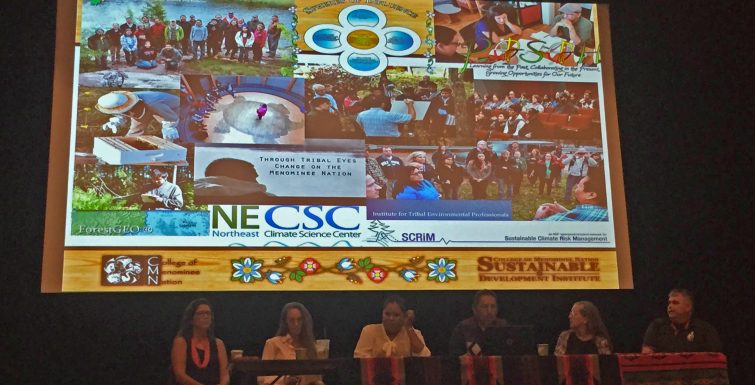 The Indigenous Peoples Climate Change Working Group, hosted by Haskell Indian Nations College, is in its tenth year. This year’s annual meeting began with intention. The community was invited as a community to participate in two full days of dialogue, and all participants found their way to a fire that was kept burning for the duration of the gathering. The group initiated the conference as a collective and entered into conversations that focused on the importance of supporting tribal colleges and universities (TCUs), how organizations can work with Tribal communities more effectively, and issues related to environmental stewardship that we as a global collective need to address.
The Indigenous Peoples Climate Change Working Group, hosted by Haskell Indian Nations College, is in its tenth year. This year’s annual meeting began with intention. The community was invited as a community to participate in two full days of dialogue, and all participants found their way to a fire that was kept burning for the duration of the gathering. The group initiated the conference as a collective and entered into conversations that focused on the importance of supporting tribal colleges and universities (TCUs), how organizations can work with Tribal communities more effectively, and issues related to environmental stewardship that we as a global collective need to address.
Panels consisted of TCU students, faculty, and staff. Representatives from National Oceanic and Atmospheric Administration (NOAA), American Geophysical Union (AGU), United States Geological Survey (USGS), National Aeronautics and Space Administration (NASA) Intertribal Council On Utility Policy (ICOUP), National Integrated Drought Information System (NIDIS), the Environmental Protection Agency (EPA), and more were also in attendance.
 Native student panelists focused on the importance of organizations visiting their communities without any intentions or expected outcomes, but to come with the plan to invest the time to build relationships in Native communities. They also stated the importance of having opportunities to speak at conferences and on panels. These speaking and representation opportunities provide them with the chance to have a seat at the table and discuss topics of importance in their communities like climate change and to create dialogue around these issues and to have people listen.
Native student panelists focused on the importance of organizations visiting their communities without any intentions or expected outcomes, but to come with the plan to invest the time to build relationships in Native communities. They also stated the importance of having opportunities to speak at conferences and on panels. These speaking and representation opportunities provide them with the chance to have a seat at the table and discuss topics of importance in their communities like climate change and to create dialogue around these issues and to have people listen.
Facilitators and organizations reinforced the unique abilities that TCUs have with regard to their impact on the communities they serve. Native peoples are innately tied to conversations and actions regarding environmental and sustainable efforts. Federal agencies and funders have the ability to uphold government-to-government relationships with Tribal nations through meaningful and productive consultation, as well as to work more creatively with them in conservation, mediation, and restorative works, such as the development of a wetland conservation plan, or conservation of culturally significant plants.
The American Indian College Fund, through the Building Sustainability Pathways program, has the ability to support TCU student success, research, curriculum development, internship opportunities, and faculty development in addressing environmental issues that they deem vital to the continuance of their people. I am grateful for the opportunity to hear and meet Native and non-Native voices of our generation speaking on these issues.
Kai Teague is the Program Administrator for the Building Sustainability Pathways program. They can be reached at kteague@collegefund.org or 303.426.9929








